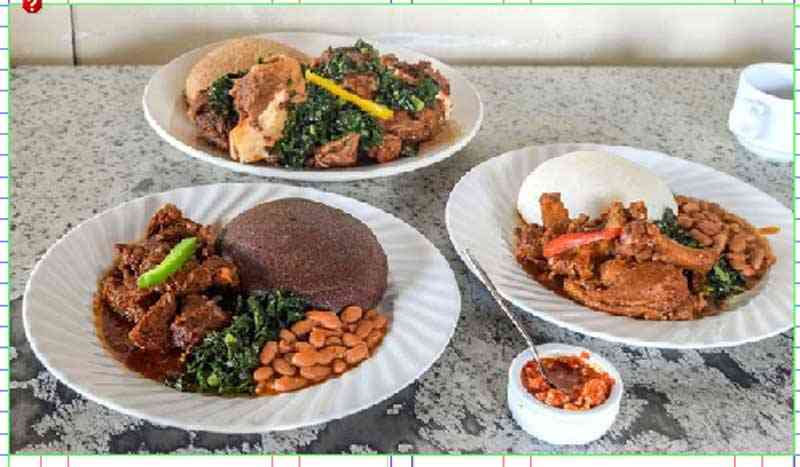
ALTHOUGH they control key natural resources like land and water, African governments continue to be found wanting in terms of supporting indigenous African food business models. Yet it is through bringing entrepreneurship into African food systems that food sovereignty and sustainable development can be achieved. Business models can positively change the mindset of consumers toward consuming indigenous food and encourage food traders to build home-grown economies.
Market at the centre
Where production of indigenous food is already happening as part of people’s culture, mass markets are playing a critical role in promoting indigenous food distribution and consumption. Policymakers can use the mass market lens to look at production, distribution, accessibility of indigenous foods, indigenous food basket and seasonal supply calendars, among other factors. The market also provides critical insights on pricing — what are the existing pricing mechanisms? Through mass markets, institutions responsible for advancing nutrition can provide nutrition knowledge as one of the key influencers of purchasing decisions by diverse consumers.
If issues are about quality, those can be addressed based on real-time evidence and if the price is uncompetitive, that can also be addressed so that all other factors make sense. Other issues can be about proper ways of handling African food from production to markets. More effort can largely be about positioning African food to be competitive against industrial or foreign food. Markets are critical because where people get their food influences their decisions to buy or not. While there is scope in using nutrition to promote indigenous food, African markets do not have that information. That is why involving seasoned nutritionists in promoting African food is very important.
Role of knowledgeable and passionate traders
Another avenue for building a business case for African food is bringing onboard knowledgeable and passionate traders who have been driving African food in African mass markets for decades. These key actors have never been sufficiently recognised and some do not even know how important they are. Their knowledge should be packaged so that they become ambassadors of African food through their trading business.
They can also become a knowledge hub for African food because they interact with farmers, traders and processors. If nutrition components are simplified, these traders can easily share such knowledge with consumers. These actors are also very knowledgeable about trends and consumer categories — critical in making a business case for African food.
Businesses around equitable distribution of African food
- Secure your business premises: Police
- New law answers exhumations and reburials question in Zim
- DT Bio Mudimba: A sungura perfectionist
- Travelling & touring: Gandavaroyi Falls: Tourism’s hanging fruit
Keep Reading
Viable business models should be set up around equitable distribution and availability of African food. This can start from mapping African food markets and production zones. Within the scope of identifying and mapping African food is figuring out what constitutes a basket at each market as well as the sources, volumes and prices. This can be related to income that can be used to promote resilience and community development in production areas.
Most African countries do not have enough packaged evidence to reveal what constitute the food basket in in particular communities and towns. A big market like Mbare Musika in Harare has 50 commodities, but Binga district has less than 10 all produced locally. What mechanisms can be put in place to support equitable distribution of African food? Corporate food systems have developed an efficient way of ensuring their food is available throughout the country at almost the same price. This requires a comparative analysis lens between exotic and African food.
Business models around indigenous inputs
Another serious gap is that African countries are not investing in alternatives. If farmers want to use natural pesticides and herbicides, how easily accessible are these inputs? Proven knowledge about the efficacy of these inputs is now abundant. This boils down to questions like: How can we extract value from our natural resources, for instance, through establishing plantations for natural herbicides and other indigenous inputs that have proven to work in diverse communities? If gavakava (aloe) has been proven effective in treating indigenous poultry from certain diseases, what stops African policymakers from setting up farms and plantations for gavakava so that it is always available? In the same vein, communities should be supported to grow plantations of natural grasses that are good for cattle, goats and other livestock to increase availability.
These are some of the ways indigenous knowledge can be used to change and increase community knowledge bases. Diverse indigenous plants, grasses and fruits can be identified, and production boosted so that they can be available at scale in an industrial way. The same applies to the ever-increasing calls for mechanising the production of indigenous food.
As long as key barriers like absence of appropriate mechanisation in producing and processing are not addressed, consumers will continue complaining about soil in the small grain and that will limit adoption in comparison to industrial food which is available in a state acceptable to most consumers.
To what extent can corporates promote indigenous food?
While several corporates have been promoting indigenous food as part of their products, a comprehensive promotional effort should be supported by passionate African people who have roots in the food system. One key role of African mass markets is protecting the identity of African food while some corporates are interested in stealing African food and recipes making it difficult to track sources and pathways. African key institutions and policy makers should promote the consumption of African food by consuming it themselves. You cannot effectively promote what you do not eat. In advancing African food, policy makers should seek answers to questions like: How much resources are African countries spending on foreign food? Many African Members of Parliament grew up consuming African food, but some are now found promoting exotic food. When a Member of Parliament buys a pizza, who is s/he supporting?








